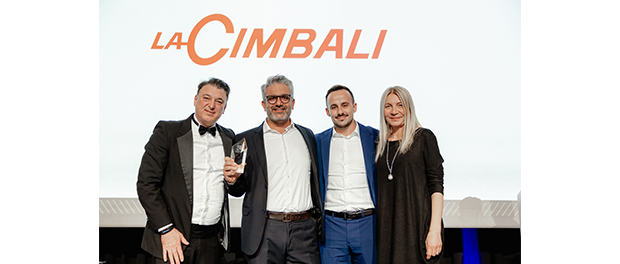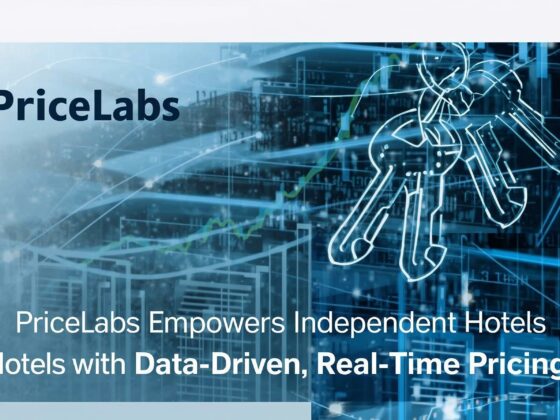
Hoteliers have a lot to consider this budget season. The effects of inflation and the higher interest rates tasked with taming it are being felt by guests, with STR projecting a 6 percent decline in real RevPAR for U.S. hotels compared to 2019. This and other closely related headwinds around the globe have led hoteliers to make difficult decisions regarding their budgets, and they are relying on technology to determine where to strategically reallocate resources across their portfolios in the face of a bifurcated travel market where segments catering to price-sensitive guests are facing challenges.
Compared to hospitality’s last boom and bust cycle, hotels can now use technology to determine what is and is not earning on property, identify existing gaps, and leverage lessons learned from past recovery periods to optimize their operations from the ground up. The most significant factor impacting these changes is the role revenue management technology has in connecting revenue leaders with other departments by facilitating the sharing of data and insights.
Revenue management technology is an integral and critical part of the hotel budget assessment process. This is partly due to its ability to help hoteliers see into the future to determine the areas of strength or need periods that should be focused on. Additionally, this technology can lend confidence to budget forecasts by allowing revenue leaders to ask, “What if?” to see how they can improve their forecasted performance in different market conditions.

That attainment of the best-forecasted performance drives the right cross-functional conversations with commercial or operating teams to amplify operator profitability and, most importantly, capture revenue. Hoteliers have long leveraged the pricing benefits of using an RMS. Still, today, they are tapping into these systems’ rapidly expanded influence across their commercial teams to become more efficient, effective, and innovative.
Here are a few ways this happens across hotels and hotel companies worldwide:
Holistic Views Influence Strategic Planning
Hotel operators and investors have steadily implemented cloud-based technology systems that continue to break down barriers between hotel departments. These interconnected systems give hoteliers a much clearer holistic view of their business. With revenue management systems positioned as an influential cog in this far-reaching collection of systems, an advanced RMS can now aid planning in areas outside the “typical” revenue management purview.
For instance, using “what-if” analysis tools to project scenarios where their forecasted business mix shifts can inform planning and budgeting for operational investments or staffing priorities. Even having a rough idea of how resources may need to be reprioritized in a few different likely scenarios can give a leg up and improve a hotel’s ability to adapt quickly.
This holistic view is even more impactful when considering “mixed-use” hotel models, which combine hotels, residences, experiences, and more and continue to grow in popularity. These hotels have unlimited opportunities to write their operational strategy but still depend on well-integrated technology systems to build the rates and packages they present to guests. With this in place, hotels can use “hybrid” forecasting to test and select the ideal packages to offer guests and see which sells the best for their property or groups of properties.
Collaborative Tech
Hoteliers know that optimizations, forecasts, and forward-looking features will help accelerate their plans to meet or exceed budget goals. The leading questions hoteliers are seeking to answer to reach this point are:
- “What type of potential changes must our industry plan for that will positively or negatively impact their future planning?”
- “Will your hotel’s business mix stay on track as expected?”
- “Will the economy provide headwinds or tailwinds that will cause forecasts to vary?
- Most importantly, “How quickly can we respond to these unexpected changes?”
In almost all cases, the answer is found through collaboration between tools and organizations. Hotel leaders must drive a team-oriented approach between sales, food and beverage, housekeeping, operations teams, and revenue management. When hotels focus on investing in vital, connected, cross-functional behaviors and technologies, their hotels will unlock improved profitability and the potential for more consistent operations.
Smarter Forecasts
Forecasting technology is the backbone of today’s most potent RMS technology. Financial forecasting tools can help hoteliers run scenarios to see how different strategies and market dynamics will impact their business in 2025. Using the proper techniques to assess their future business mix, hoteliers can set the appropriate strategy to drive confidence when delivering against their budget. These decisions will significantly impact their hotel’s success and guest satisfaction as hospitality continues to double down on customer service.
Enabling capabilities across your commercial team should be every hotel leader’s priority while budgeting for 2025. This investment will help support future budget considerations as hotels tap into on-property data to learn what is moving the needle at their location. Hotels that understand how many bartenders or front-of-house staff they need for each shift based on the projected number of check-ins can be a game changer operationally and for the hotel’s bottom line. Properties in seasonal destinations can even use forecasting to plan periods to shut down parts of their properties and generate utility savings while embracing a more environmentally responsible operations strategy.
However, generating these forecasts is not enough. In the above examples, hotels found ways to seize on their insights and create strategies to address these needs across hotel revenue outlets rather than simply filling rooms and raising ADR in new ways. Instead, hotels that adopt the mindset and behavior necessary to support their revenue and profit mix will find creative ways to leverage their forecasting insights.
Budgeting for the upcoming year is complex, but hotel leaders can leverage revenue management technology to gain confidence in a process dominated by unknown factors. The more hotels can make informed decisions during the budgeting process, the more prepared they will be for tomorrow’s travelers. The data is available today–so why wonder?





